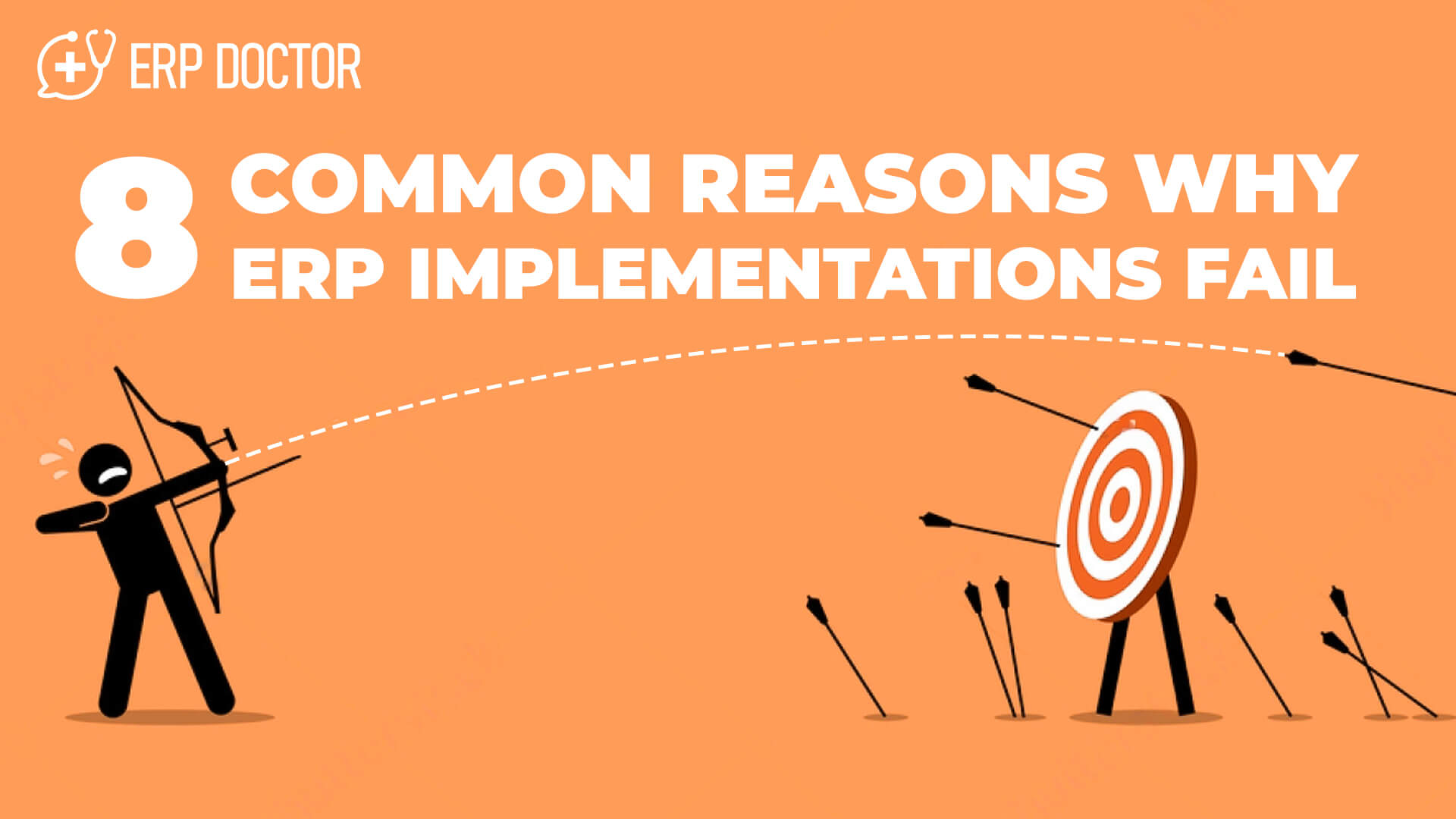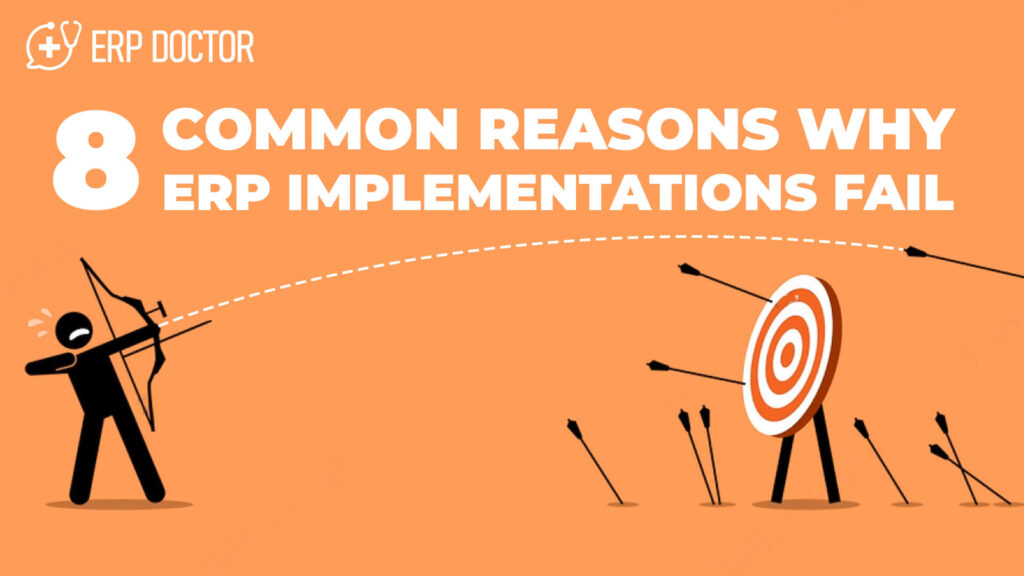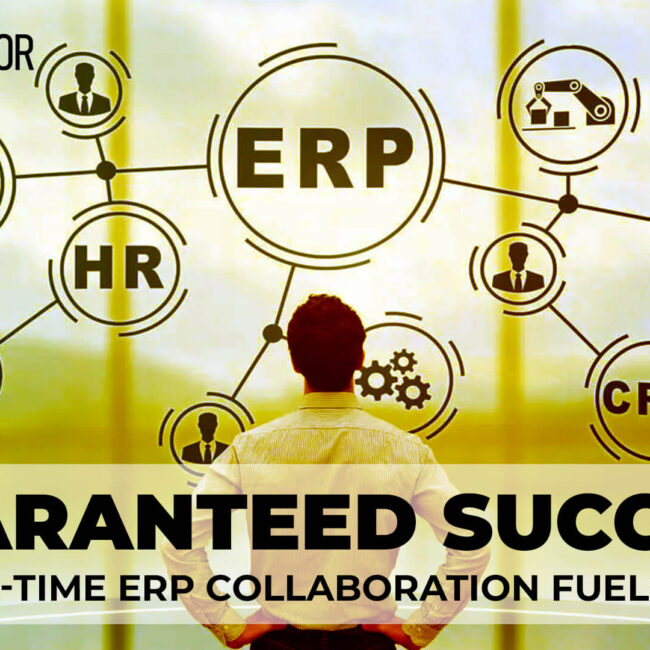
8 Common Reasons Why ERP Implementations Fail

Unlocking the Secrets to ERP Implementation Success
Enterprise Resource Planning (ERP) systems are a powerful tool for streamlining business processes, enhancing efficiency, and improving decision-making. However, despite their potential benefits, ERP implementations can be challenging and prone to failure. In this blog, we will delve into eight key reasons why ERP implementations fail, shedding light on the pitfalls to avoid in order to ensure a successful deployment.
1. Scope Creep:
One of the primary culprits behind ERP implementation failures is scope creep. Attempting to incorporate an abundance of features and continuously altering the project’s scope during implementation can have detrimental consequences. Such actions often result in budget overruns, timeline delays, and a dilution of focus from the core requirements initially outlined.
2. Customization Complexity:
While customization is essential to tailor an ERP system to an organization’s specific needs, excessive customization can lead to a paradoxical outcome. The more a system is customized, the more complex it becomes, rendering it difficult to manage and maintain. This complexity translates into increased costs, delays, and compatibility issues, potentially hampering the entire implementation process.
3. User Resistance and Involvement:
A lack of employee buy-in and resistance to change can deal a severe blow to ERP implementation success. Inadequate training, along with a failure to involve end-users in the implementation journey, can result in poor adoption rates and undermine the system’s intended benefits. Ensuring employees are well-prepared and engaged is crucial to overcoming this challenge.
4. Lack of Executive Support:
Without robust support from top management, ERP implementations can struggle to secure the necessary resources, budget allocation, and widespread acceptance across the organization. Strong leadership and a commitment to the implementation project are pivotal to its success.
5. Inadequate Change Management:
ERP implementation invariably introduces significant organizational and cultural changes. Failing to manage these changes effectively can lead to internal disruptions and resistance. Companies must invest in change management strategies that help employees adapt to the new processes and embrace the system.
6. Poor Change Management:
Similar to inadequate change management, the failure to address user resistance, deliver comprehensive training, and manage the cultural shift inherent in ERP adoption can lead to dire consequences. Low user adoption rates and operational disruptions can ensue, hindering the realization of benefits.
7. Poor Data Migration and Quality:
Data migration from legacy systems to the new ERP environment is a complex process. Neglecting data migration best practices or overlooking data quality can give rise to inefficiencies and issues within the new system. Ensuring a seamless and accurate data migration is essential for ERP success.
8. Poor Vendor Selection:
Choosing the right ERP vendor or implementation partner is a critical decision that significantly impacts project outcomes. Opting for an inexperienced, ill-equipped, or unsupported vendor can spell disaster for the implementation journey, leading to project delays, subpar results, and potential failure.
ERP implementations hold the promise of transforming organizations, but they also come with their fair share of challenges. By addressing these eight common reasons for ERP implementation failure, businesses can better position themselves for success. From meticulously managing scope and customization to prioritizing user involvement and selecting the right partners, a proactive approach can mitigate risks and pave the way for a seamless and fruitful ERP implementation journey.
Embark on an inspiring journey today – Visit our website and discover a world of knowledge, creativity, and endless possibilities! Don’t miss out on exclusive content and exciting updates. Click here to explore and be part of our thriving community!







